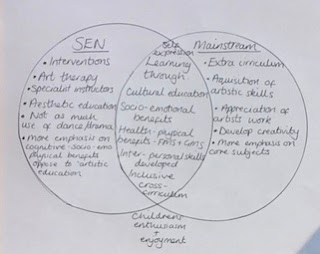Over the past few weeks within my practice we have had two oral presentations given from external practitioners with regards to GDPR and health and safety instead of being disengaged from these I decided to use the opportunity to connect, relate and reflect these to my BAPP course, recognising what I felt worked and didn't work within these in terms of an oral presentation. Thus incorporating some tips to remind myself for creating and presenting my oral presentation:
- Introduce myself - allows the audience to connect on a deeper level if they feel they know who you are and what your about
- Not too many words on the power point presentation- just key words- audience gets lost or distracted with reading
- Make the powerpoint visual – coloured texts, diagrams, images, videos
- No notes in hands
- Audience participation- ask them questions, game/quiz, ask for examples related to their practice
- Use of humour
- Give examples and stories
- Show passion, enthusiasm and knowledge on the topic
So here goes for the last leg. Looking forward to meeting some of you next week.











